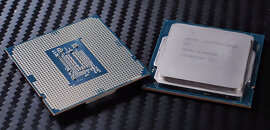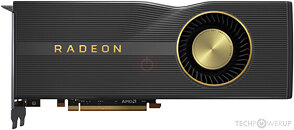
EA Reportedly Closes Cliffhanger Games; Black Panther Project Canceled
Throughout the Spring season, Electronics Arts (EA) has reduced development team numbers across several of its international first-party game development studios. According to a fairly fresh IGN news report, another North American operation has been shutdown. Cliffhanger Games was working on a triple-A Black Panther intellectual property, with Marvel's full approval—as teased back in mid-2023. IGN's inside sources have leaked an email—allegedly authored by Laura Miele, EA Entertainment's president—that was addressed the latest round of layoffs at Cliffhanger Games, and unspecified "mobile and central teams." Apparently these adjustments are necessary; Miele (reportedly) believes that these changes will: "sharpen our focus and put our creative energy behind the most significant growth opportunities...These decisions are hard. They affect people we've worked with, learned from, and shared real moments with. We're doing everything we can to support them—including finding opportunities within EA, where we've had success helping people land in new roles." In recent times, company leadership had openly discussed a move away from licensed IP projects. Supposedly, Miele's email mentions a focus on core EA franchises going forward: The Sims, Skate, Battlefield, and Apex Legends.
eXtas1s, a somewhat unreliable source of inside track info has weighed in with related news. The Spanish leaker shared an offbeat claim: "I have learned that around 400 more layoffs are coming at EA, the total closure of Codemasters HQ, and that those developers will be integrated into EA Sports (F1), and a new Need For Speed that is already in development." Going back to late April, EA declared that an unspecified number of layoffs were underway at Codemasters. Earlier this month, the long-running British racing game specialist had stopped working on the popular WRC franchise. Since then, NACON—a French publication house—has picked up the FIA World Rally Championship license. Within the same time period, an official announcement outlined the cancelation of two unannounced projects at Respawn Entertainment. Prior to cessations, the Los Angeles, California-based outfit was working on two "early stage" titles—insider reports suggested that one of these mystery IPs was some sort of nascent Titanfall title. Interestingly, Respawn's leader—Vince Zampella—is steering the next Battlefield game. Several EA studios have been roped into a multipronged production approach.
eXtas1s, a somewhat unreliable source of inside track info has weighed in with related news. The Spanish leaker shared an offbeat claim: "I have learned that around 400 more layoffs are coming at EA, the total closure of Codemasters HQ, and that those developers will be integrated into EA Sports (F1), and a new Need For Speed that is already in development." Going back to late April, EA declared that an unspecified number of layoffs were underway at Codemasters. Earlier this month, the long-running British racing game specialist had stopped working on the popular WRC franchise. Since then, NACON—a French publication house—has picked up the FIA World Rally Championship license. Within the same time period, an official announcement outlined the cancelation of two unannounced projects at Respawn Entertainment. Prior to cessations, the Los Angeles, California-based outfit was working on two "early stage" titles—insider reports suggested that one of these mystery IPs was some sort of nascent Titanfall title. Interestingly, Respawn's leader—Vince Zampella—is steering the next Battlefield game. Several EA studios have been roped into a multipronged production approach.




































































